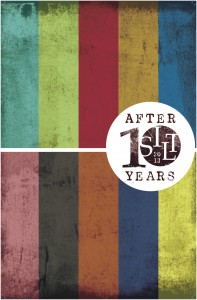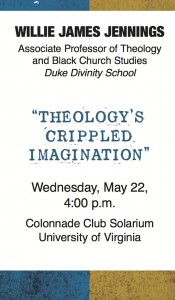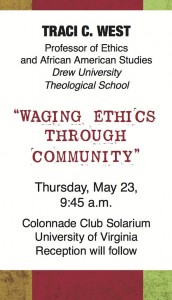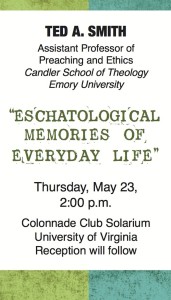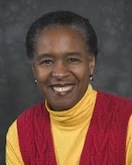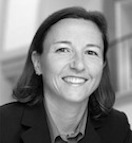Nearly 50 million Americans deal with food insecurity (defined by the consistent lack of access to food that is conducive to a healthy life) every day. Before last Friday, I had never seen the inside of a food bank (or outside, for that matter—Washington suburbs do an excellent job of masking signs of economic crisis). It is not comfortable to admit this. For me (if not for most), it is easier to pretend poverty does not exist in the fruitful world I want to create for myself. It seems an inexhaustible problem: commit to aiding one person’s need, and then release the floodgate of reality–the millions more imploring assistance and advocacy. And I just want to read my book in peace…
Eleis (Haven kitchen manager/staff person/generally wonderful person) and I arrived at the Blue Ridge Area Food Bank just prior to a shipment of fresh produce, crates of nectarines, grapefruits, and apples unloaded from eighteen-wheelers. Eleis visits the food bank to shop for food staples not often donated, like fresh produce, that would otherwise have to be purchased using the Haven’s kitchen budget. While there are some surprising finds in the food bins—I didn’t expect to find three hefty packages of gluten-free lemon bar mix—most of the non-perishable items are back-of-the-shelf variety: dented, ripped, discounted, almost-expired.

The Blue Ridge Area Food Bank provides sustenance for much of central Virginia, feeding children, men and women among the working poor, homeless, or otherwise in-need populations. We are very lucky in Charlottesville to have the distribution center within our city, as most agencies or individuals collecting food must drive a not-insubstantial distance to pick up a donation. The food bank is housed in a warehouse-type building, with practical concrete floors, fluorescent lighting, and food displayed in deep bins that remind me of the $3 DVD piles at Wal-Mart. There are designated bins for rice and pasta, canned beans, canned vegetables, and baking supplies.
Here, thousands of Virginians are given food on the brink of extinction from the middle-class world, offered to the needy one step before heading to a landfill. The Blue Ridge Food Bank is a great organization, and its affiliates persevere every day to provide the best quality food for the people they serve. Nevertheless, this is the food that is easy to donate. This is the food that no original possessor will miss.
The radical hospitality of The Haven (one of my favorite one-liners from my mentor, Stephen Hitchcock) may need a radical theology. The famous lines from Matthew 25:35-40 might not be enough.[i] This is a universal Bible verse, one that every mission trip and Christian volunteer cites as the inspiration for doing charity. It is a phenomenally important selection, imploring followers to stay attentive to the needs of all humankind. This chapter follows the prophecy of the destruction of the Temple, as Matthew 24 ends with a warning to be on your best behavior every day, as you never know when judgment may come.
I am no biblical scholar, but I am more inclined to see The Haven’s work through the lens of Douglas John Hall, a 20th century Canadian theologian who presents a “theology of the cross” that “faces human weakness and limitation head-on.”[ii] According to Kelly Johnson, what is significant about Hall’s “theology of the cross” is that it “pronounces an unresolved ‘beggarliness’ on all creation, and identifies Christian faith with the recognition of this truth” (163). In an America where it is easier for the majority to forget about food banks, Hall reminds us that we are all beggars; that is, we are all profoundly reliant on one another for sustenance. We desperately need to be held by those we love. One person cannot support him or herself in isolation. Hall’s writings acknowledge that there is no distinction between the one on the lookout for Christ in the guise of a beggar and the beggar himself. There is no beggar group or lookout group; we are all members of the same body and cannot be isolated from one another.
The total rejection of isolation within The Haven’s low-barrier philosophy may be considered a radical theology. It challenges the notion of the other, of the invisible, undesirable blots of poverty among comfortable neighborhoods. Part of the volunteer orientation includes a round table discussion on how being at The Haven might put a new participant out of her comfort zone. While it may not be a theological jump for some volunteers (after all, Matthew 25:35-40 is justification enough for most), committing to The Haven is a social and classist rejection of poverty’s veil. It certainly was for me. I am grateful for the startling (and much needed) perspective The Haven has provided within my daily life as a University of Virginia student.Taking the 6:40am bus downtown to The Haven launched me into the tangible layer of Charlottesville, a real world of early morning work shifts and construction uniforms. To accept The Haven is to accept that Charlottesville is not encapsulated by the privilege of the university biome. Kelly Johnson writes, “[The non-poor] can find the courage to give up their security, if they will, that Christianity is a story about a person, not a set of doctrines, and that the Person possesses the churches, rather than they him” (165). In that way, we can work towards exceptional humility and openness to all women and men as fellow beggars in need of one another.
Maybe Americans try to make poverty invisible out of fear. Perhaps we fear the poor because we fear drowning in the entanglements we believe momentary generosity will produce. Perhaps we fear beggars because we fear to be like them; we fear to acknowledge that the economic world which has made us not-them will make us them. But we are all part of the same impossibly knit family. As Alphonse Lugan wrote, “Man in the gospel is part of an organism whose members tend to the same end by different means.”[iii] All men and women are a reflection of a unified self, yet I still do not know where to find a food bank in my hometown. “Fear of poverty” is an over-simplification, of course. Understanding the psychological implications of belonging within a class system is far beyond the scope of my summer. At this point, I can only hope to keep learning with open eyes and ears and a face turned towards the theology of the cross.
[i] “For I was hungry and you gave me something to eat, I was thirsty and you gave me something to drink, I was a stranger and you invited me in, I needed clothes and you clothed me, I was sick and you looked after me, I was in prison and you came to visit me. Then the righteous will answer him, ‘Lord, when did we see you hungry and feed you, or thirsty and give you something to drink? When did we see you a stranger and invite you in, or needing clothes and clothe you? When did we see you sick in prison and go to visit you?’ The King will reply, ‘Truly I tell you, whatever you did for one of the least of these brothers or sisters of mine, you did for me.’” (New International Version)
[ii] Kelly S. Johnson, The Fear of Beggars: Stewardship and Poverty in Christian Ethics. Grand Rapids: William B Eerdmans Publishing Company, 2007.
[iii] Alphonse Lugan, Social Principles of the Gospel, trans. T Lawrason Riggs (New York: The MacMillan Company, 1928), 151.
Photo Credit: Readthehook.com

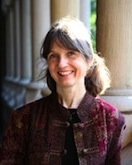 In anticipation of the 2013 meeting of the Virginia Seminar in Lived Theology convening this week, Susan Holman offers insight on the task of writing lived theology. Please read her essay “On Writing Lived Theology” by clicking
In anticipation of the 2013 meeting of the Virginia Seminar in Lived Theology convening this week, Susan Holman offers insight on the task of writing lived theology. Please read her essay “On Writing Lived Theology” by clicking 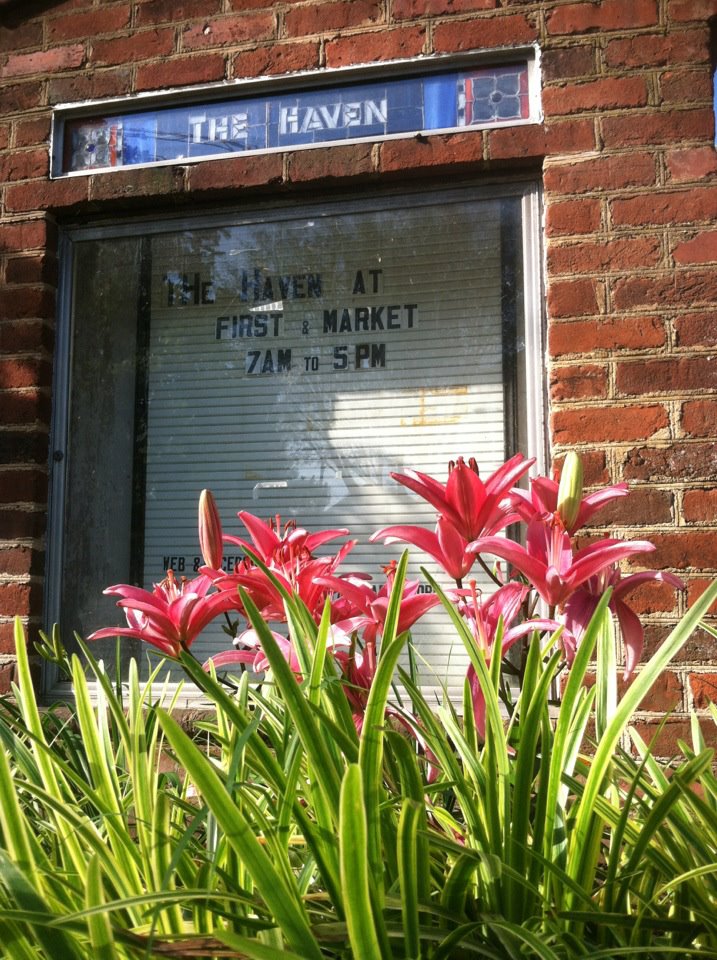

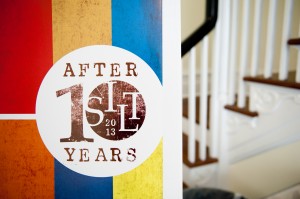
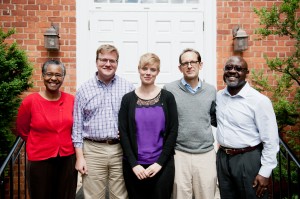
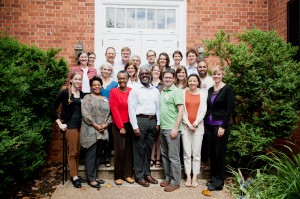
 On March 7, 2003, The Project on Lived Theology held the fifth session of
On March 7, 2003, The Project on Lived Theology held the fifth session of 